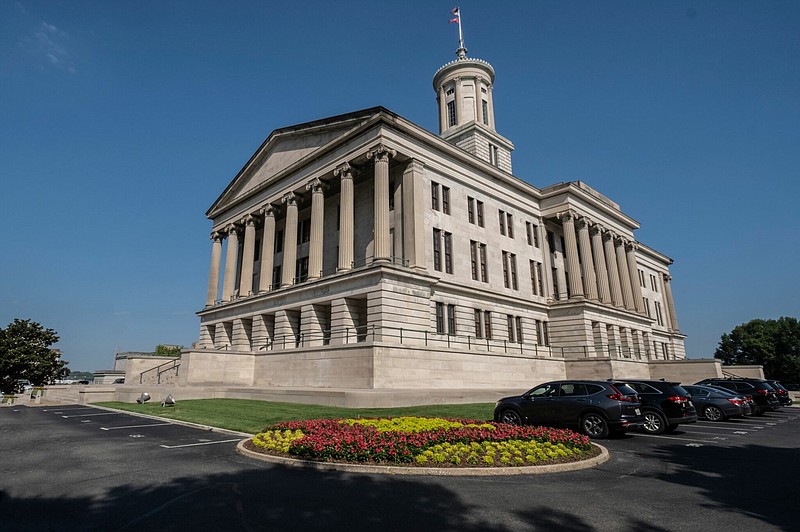Barely a month after the Tennessee Legislature passed a COVID-19 omnibus bill cobbled together outside of public view, some lawmakers are ready to unwind it.
The legislation was aimed at fighting back against vaccination and mask mandates, most notably the federal vaccine mandate requirement for employers.
Much of the legislation has been nearly rendered moot by two federal court rulings that put a hold on President Joe Biden's vaccine mandate, followed by Comptroller Jason Mumpower's move to suspend exemptions from the Tennessee COVID-19 law for federal contractors and those receiving federal grants or Medicare and Medicaid money.
That move ended protections for businesses, universities and hospitals that wanted to require vaccinations and masks for employees.
Legislators also are taking a look at a provision in the new law that prohibits the Tennessee Board of Medical Examiners from disciplining doctors who give out bad information about COVID-19 or use unapproved treatments on patients who contract the disease. State Rep. John Ragan, R-Oak Ridge, threatened to call the board before the Government Operations Committee if it didn't remove a message from its website notifying physicians they could face disciplinary action.
State Rep. Patsy Hazlewood, a Signal Mountain Republican and chair of the House Finance, Ways & Means Committee, voted against the final version of the COVID-19 omnibus bill. She declined to discuss specific pieces but gave her outlook for the Legislature's return in January.
"I have concerns about several parts of that bill," Hazlewood said last week. "At this point, I don't have any plans for legislation, but ... I have concerns about several parts of the bill, and I think we'll be revisiting a number of things in the regular session."
Hazlewood also opposed legislation for partisan school board elections statewide, saying she felt it would stop many qualified candidates from running.
Rep. Michael Curcio, a Dickson Republican who was one of several in his caucus who voted against the bill, balked at the legislation because he didn't believe the state could "solve mandates with more mandates." In other words, putting a new state rule on businesses would put them in a vice between state and federal government regulations.
"Private business owners need to be able to make their hiring and firing decisions. In a right-to-work state where we're about to enshrine the right-to-work concept in our Constitution, I just felt like it was ... an interesting step backward from that core belief of the General Assembly," Curcio said.
Curcio didn't say whether he would be pursuing legislation to reverse any parts of the law. It is supposed to run out in July 2023 anyway.
But Democratic Sen. Heidi Campbell of Nashville thinks the law needs reversal, especially the part prohibiting disciplinary action on rogue doctors.
"I would even go as far as to say ... that's sort of penetrating the sanctity of Western medicine," Campbell said. "Once we start as a legislature telling doctors how to practice medicine to the point we're intervening in their ability to perform their duties, then we've got a big problem."
Such measures stem from anti-vaccination efforts taken up by some legislators who are being egged on by groups such as Tennessee Stands, a group whose writings have been disseminated among lawmakers.
Campbell contends the "disdain" for science driving these efforts is putting the state in "big, big trouble." Whether she'll get any help from Republicans in trying to turn back the law remains to be seen, especially since most on the other side voted for the legislation.
Lt. Gov. Randy McNally, who sponsored the bill, and Sen. Shane Reeves, both pharmacists who urged people to get vaccinated, voted for the measure. So did Sen. Joey Hensley, a physician. Sen. Richard Briggs, a physician from Knoxville, was the only Republican to vote against the bill early on the morning of Oct. 30, after most people had left the Capitol.
In a rare and odd move, lawmakers were told they needed to pass the omnibus bill so it could be sent to a conference committee. There, the real language would be placed in the bill. Thus, most lawmakers probably didn't get to read the final legislation before they voted on it early that morning.
It is reminiscent of the passing of the Affordable Care Act. Critics said Congress had to pass it so they could find out what's in it. Now that everyone knows what's in the COVID-19 bill, some lawmakers are ready to rescind it.
